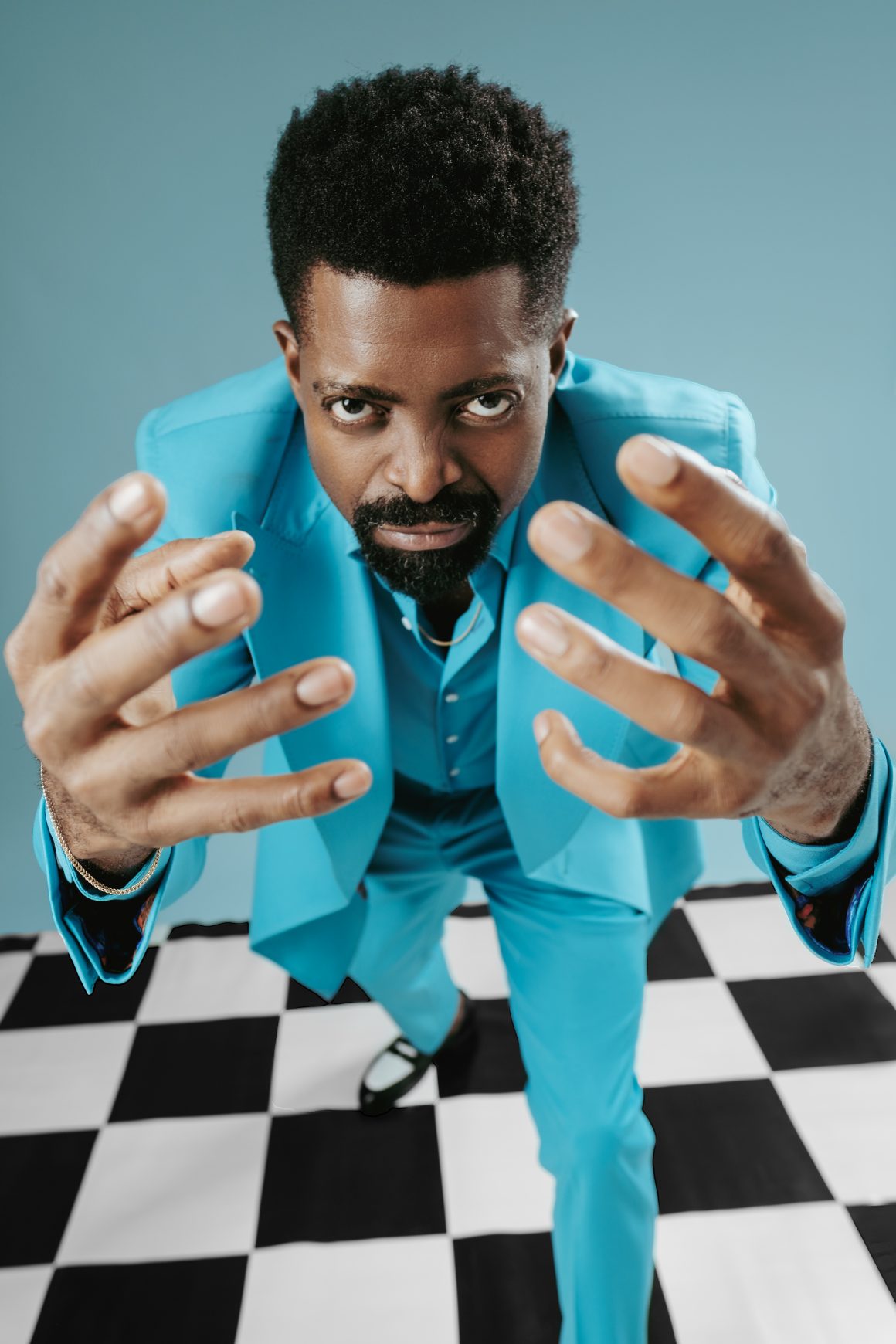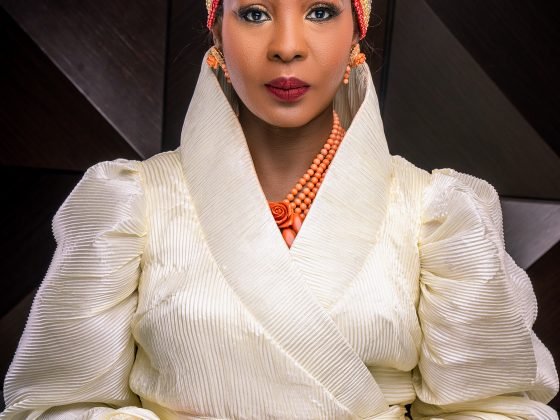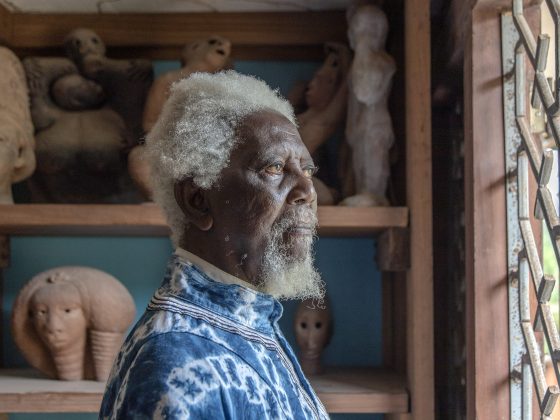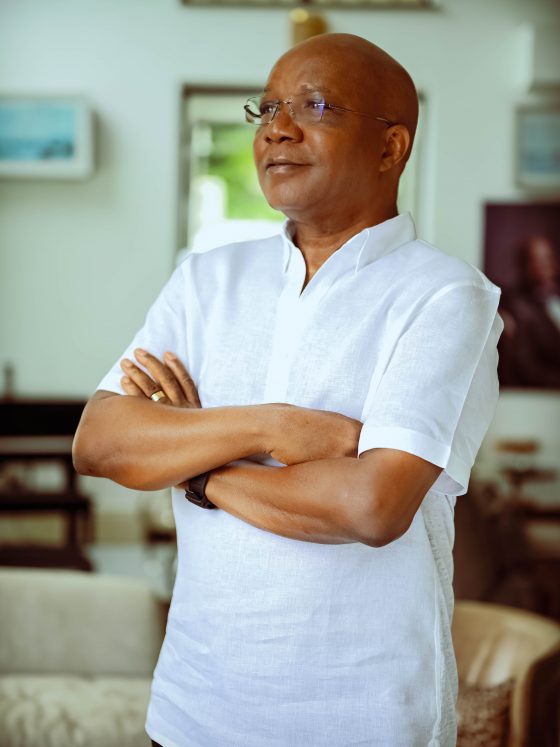His name is Bright Okpocha, but to millions, he’s Basketmouth! Back in 2000, when standup comedy was still finding its footing in Nigeria, Basketmouth burst onto the scene like a comedic dynamo. Interestingly, his journey started with a passion for rap, which unfortunately didn’t go as planned, but fate had other hilarious plans for him. With a captivating mix of jokes, stories, lightning-fast improvisation, and razor-sharp comebacks, Basketmouth’s talent shot him to superstardom in the comedy universe. Today, his name reverberates through nationwide households, a testament to his remarkable impact on the industry.
But Basketmouth’s brilliance doesn’t stop at comedy alone; he has successfully ventured into the world of acting as well. You might have caught him gracing the screens in various comedy series, shows, and more, proving that his talent knows no bounds.
Recently, I had the pleasure of sitting down with the comedic maestro himself, where he shared his unique approach to comedy, the fearless attitude he brings to the stage, and his latest gem, “LOL: Last One Laughing Nigeria,” now exclusively available for streaming on Prime Video.
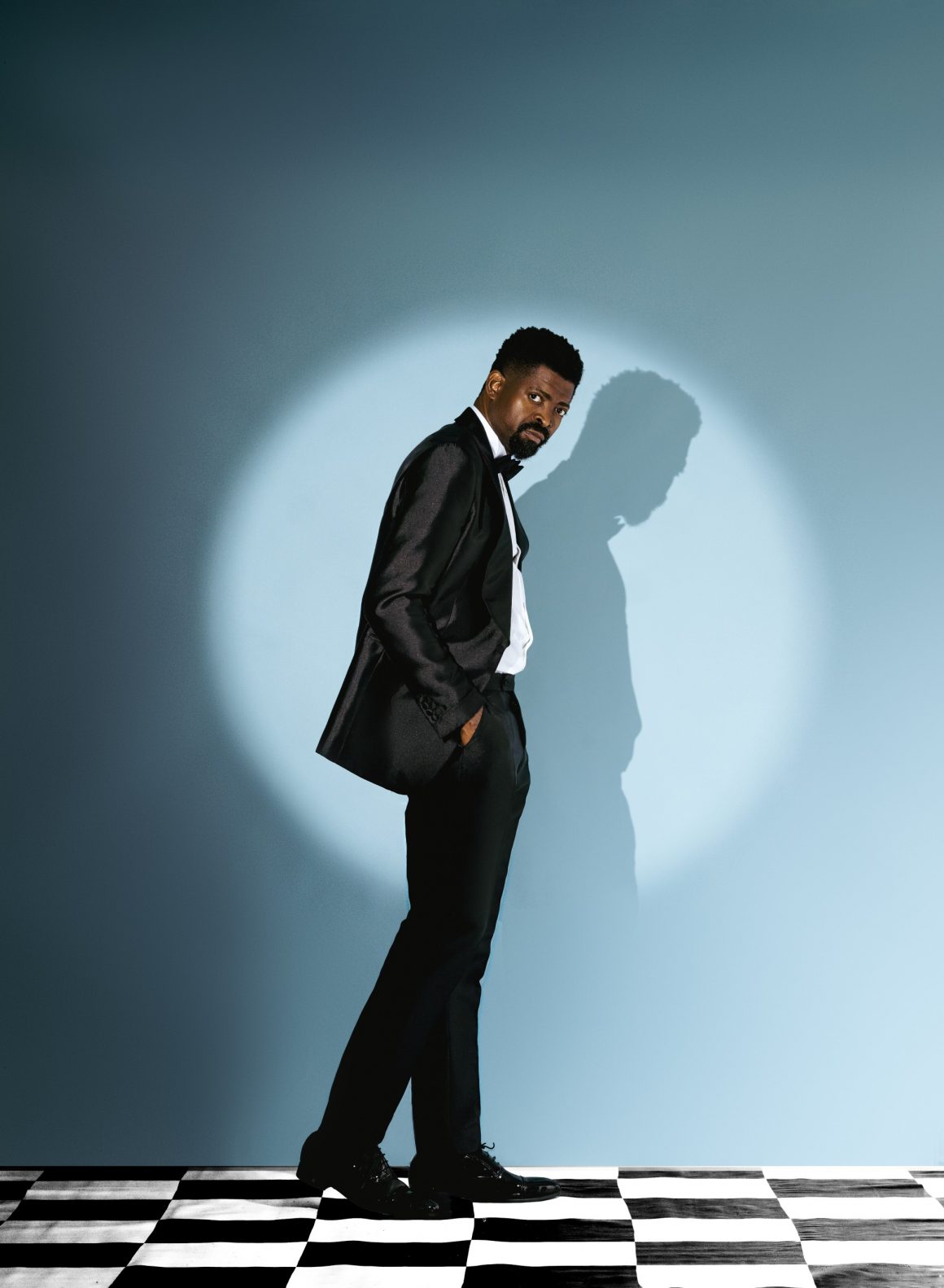
When you were growing up, were you always the funny guy amongst your peers, and did they ever suggest or say to you, “You should be a comedian when you grow up”? What was the “aha” moment when you realised you wanted to pursue a comedy career?
All my friends were pretty funny, so I didn’t realise early enough that it was a gift. It all started coming together in JSS1. We had a thing called wording, just like “yo mama”. When a few students identified me as having a bad mouth, the word spread quickly.
Not long after, my schoolmates started paying me ₦5 to “word” students they had a fight with. It became my daily lunch money; I kept at it until SS1, and then I kind of lost interest in it. Eventually, I picked a new one and entertained my classmates during break time. We didn’t know what standup comedy was; I was just having fun. Not long after I left secondary school, I was entertaining my friends at home with some made-up funny stories, and my eldest brother’s friend asked me if I had seen Eddie Murphy’s standup comedy show “Delirious”. I never knew Eddie was a comedian; I was only exposed to his movies. This was in 1995. He lent me the tape, and I started watching it. I thought to myself, “Bright, this is it!! This is what you must do; this is who you are.”
They say artists are born. How helpful was your childhood in making you a standup comedian?
My talent made me a standup comedian; my experience as a child down to adulthood moulded the entirety of my design.
You went into comedy over 20 years ago, when comedy was still very new in Nigeria. How supportive was your family when you told them you wanted to stand up?
They were supportive; my dad asked me if this was what I wanted to do now. His only condition was that I would finish school no matter what.
Before you went into standup comedy, you were a rap artist. Tell us how it went and what made you choose comedy.
In 1995, five years before I started doing comedy, I was really into rap music under the name ‘Lyricist.’ I spent 17 years exploring rap and was part of a rap group called The Psychopaths with my brother Godwin, Dominic Umeri, Emeka Morka, Fred, and Kenneth Oliver Tutu. Our dream was to become a top rap group in Nigeria and beyond, but after a few years, university admissions split us up. We had a unique style mixing hip-hop and Afrobeats, which is common now but was unusual back then. Unfortunately, people didn’t quite get it at the time, so I eventually switched to comedy.
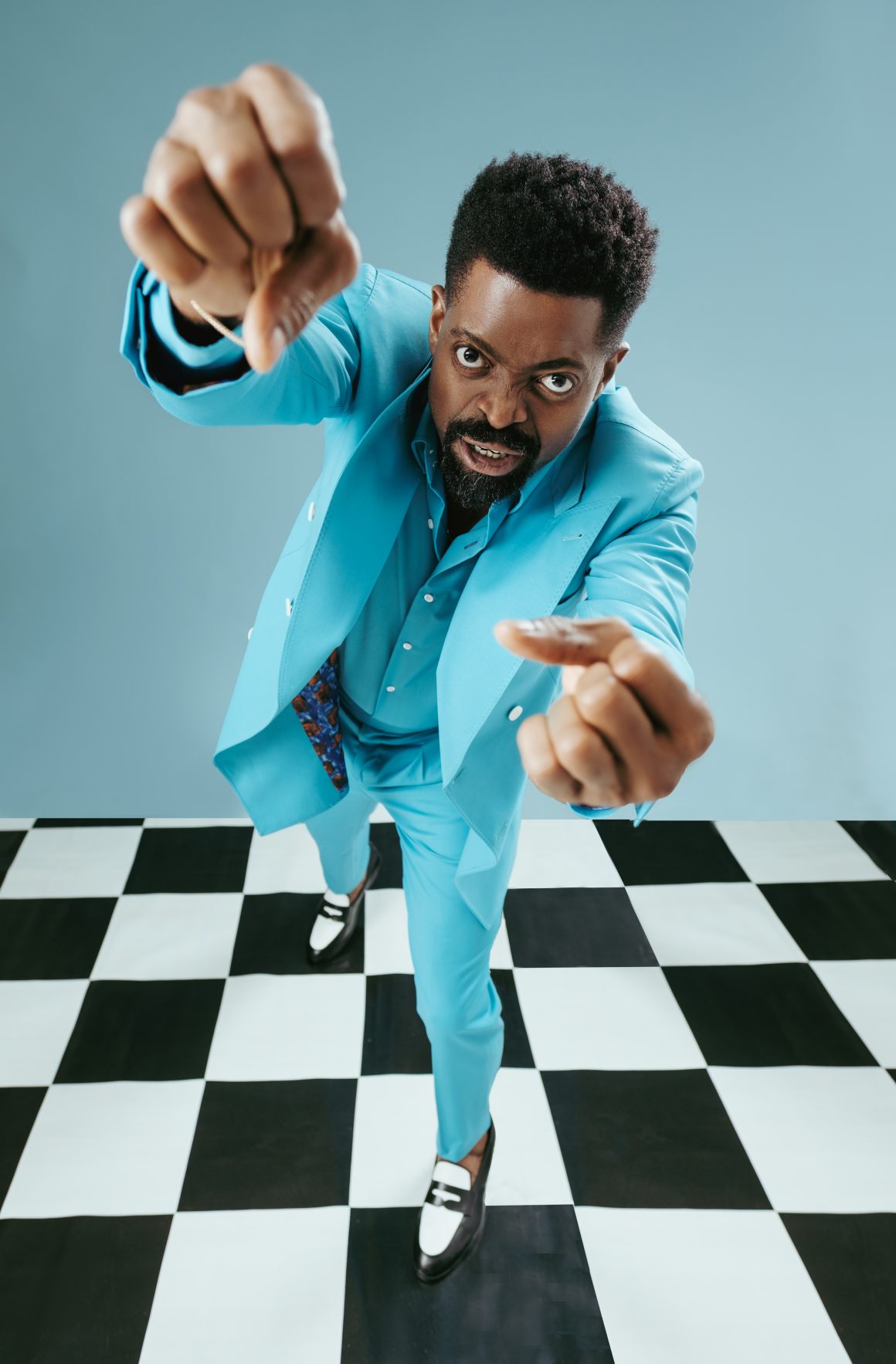
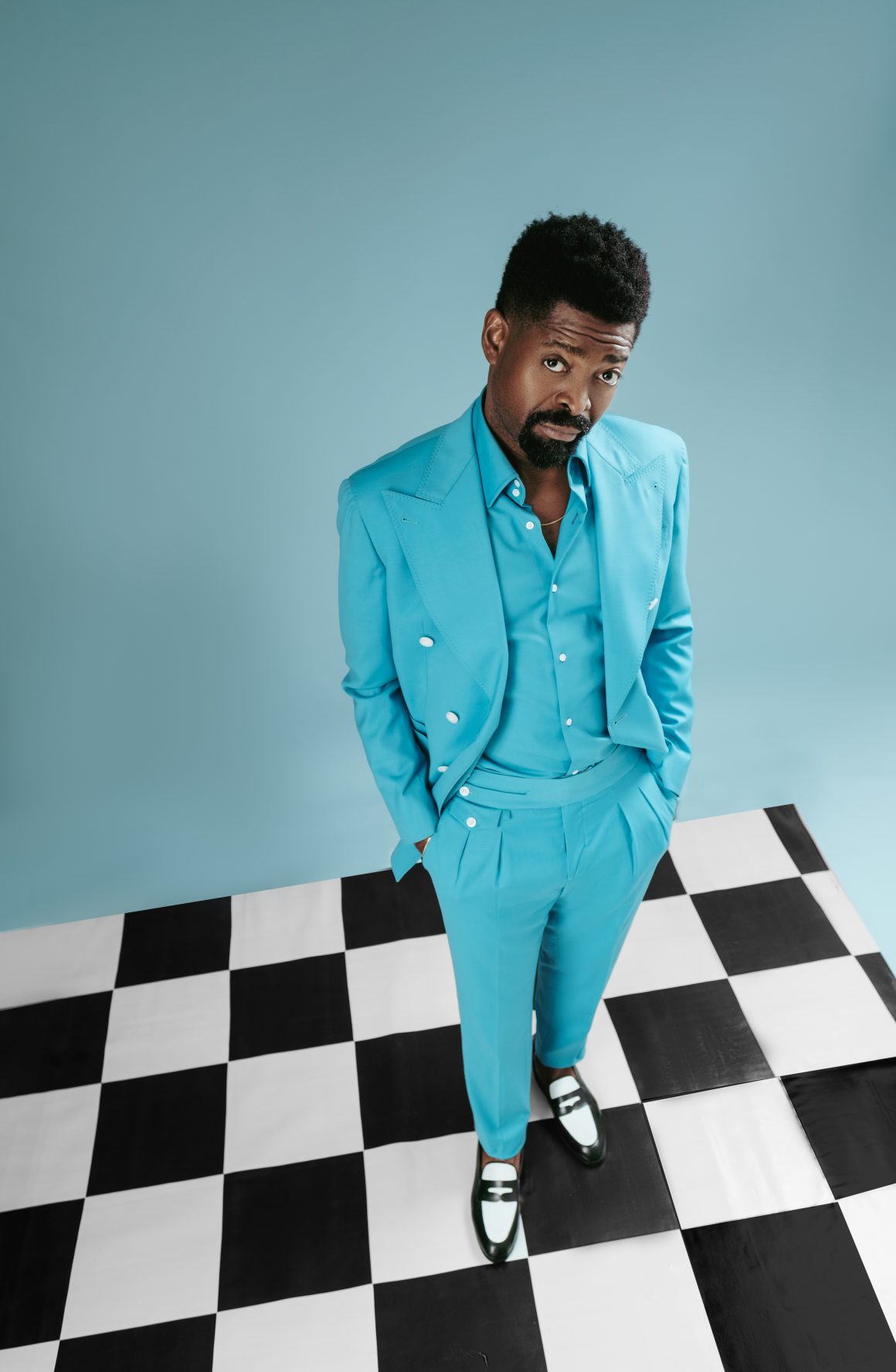
It would be right to say your rap career didn’t take off like you would have liked, but what would it be if you were to choose between rap and comedy?
While rap music was my initial passion, comedy has become the cornerstone of my life. Faced with a pivotal decision, I ultimately opted for comedy, although it wasn’t my original devotion. The prevailing lack of appreciation for rap music during that time made the transition to comedy a straightforward choice.
Rap and comedy are worlds apart, but you have been a part of both. What will you say the similarities are?
Both comedy and rap have intertwined in my journey, with rap being a passion I carried for 17 years before comedy took the spotlight. The inclination towards rap was evident in my early music pursuits with a group called The Psychopaths. While comedy became my life’s pursuit due to greater acceptance, the two talents may someday coexist. But, for now, comedy remains my primary focus, driven by a deep-rooted connection that dates back to my beginnings in the entertainment scene.
You are also an actor and producer, and your series “My Flatmate” has been one of Nigeria’s most successful comedy series. Tell us how it all began—where did the idea come from?
My first home in Lagos was in Iponri Estate. At that time, I was one of the few entertainers established in Lagos, while others were scattered in different places. I offered my place to those who needed a place to stay in Lagos, and many now-celebrated comedians lived in that small flat. Sometimes, about 15 of us squeezed into a three-bedroom apartment. I liked working in close quarters, so one day, while sitting at the dining table with my friend Kayode Peters (KP), the idea for “My Flatmates” struck me. We found another friend’s cool apartment to shoot the show, and even though I couldn’t afford to pay for a location, set, or even a proper camera, we pulled it off with what we had. KP’s resourcefulness helped us get cameras for a fraction of the cost, and despite challenges, the show ran for two years. We didn’t give up, and now the show is in its seventh season. It’s one of Africa Magic’s top TV shows, celebrated for its humour and strong comedic performances, making it a leading Nigerian comedy sitcom.
Comedy has come a long way in Nigeria. Can you tell us what your experience was with what is now available? Would you say it has gotten easier for new comedians on the comedy scene?
There’s always been a challenging path to success. However, there are certain advantages that social media has provided. You put out content, and it gets thousands of views in minutes, unlike in our day when we physically had to go to as many locations as possible to showcase our skills. The days when you get instant and audible feedback. You could get booed off the stage. Now, you can delete or block any comment you don’t like. So, it’s gotten much easier, but that doesn’t mean it’s easy.
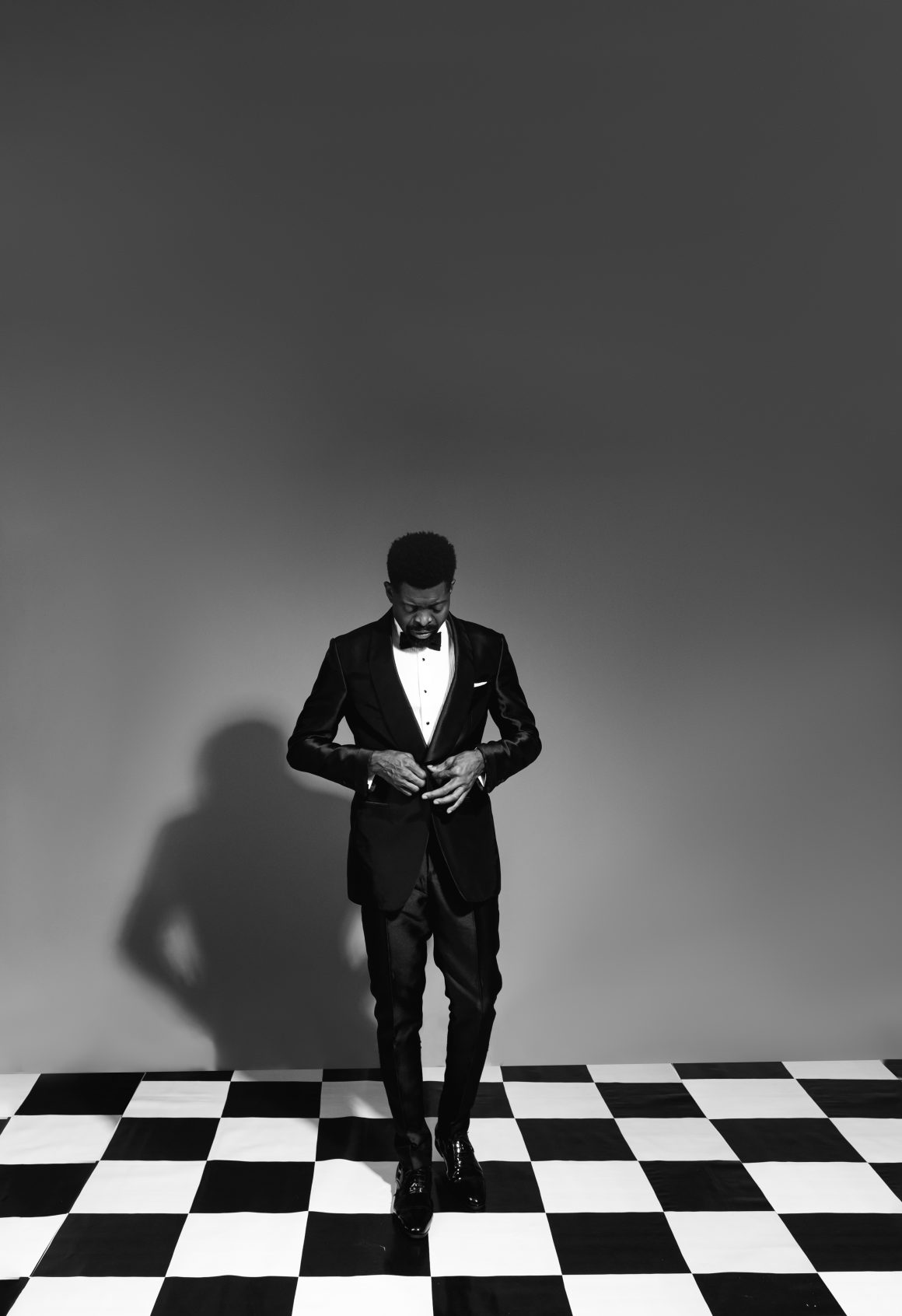
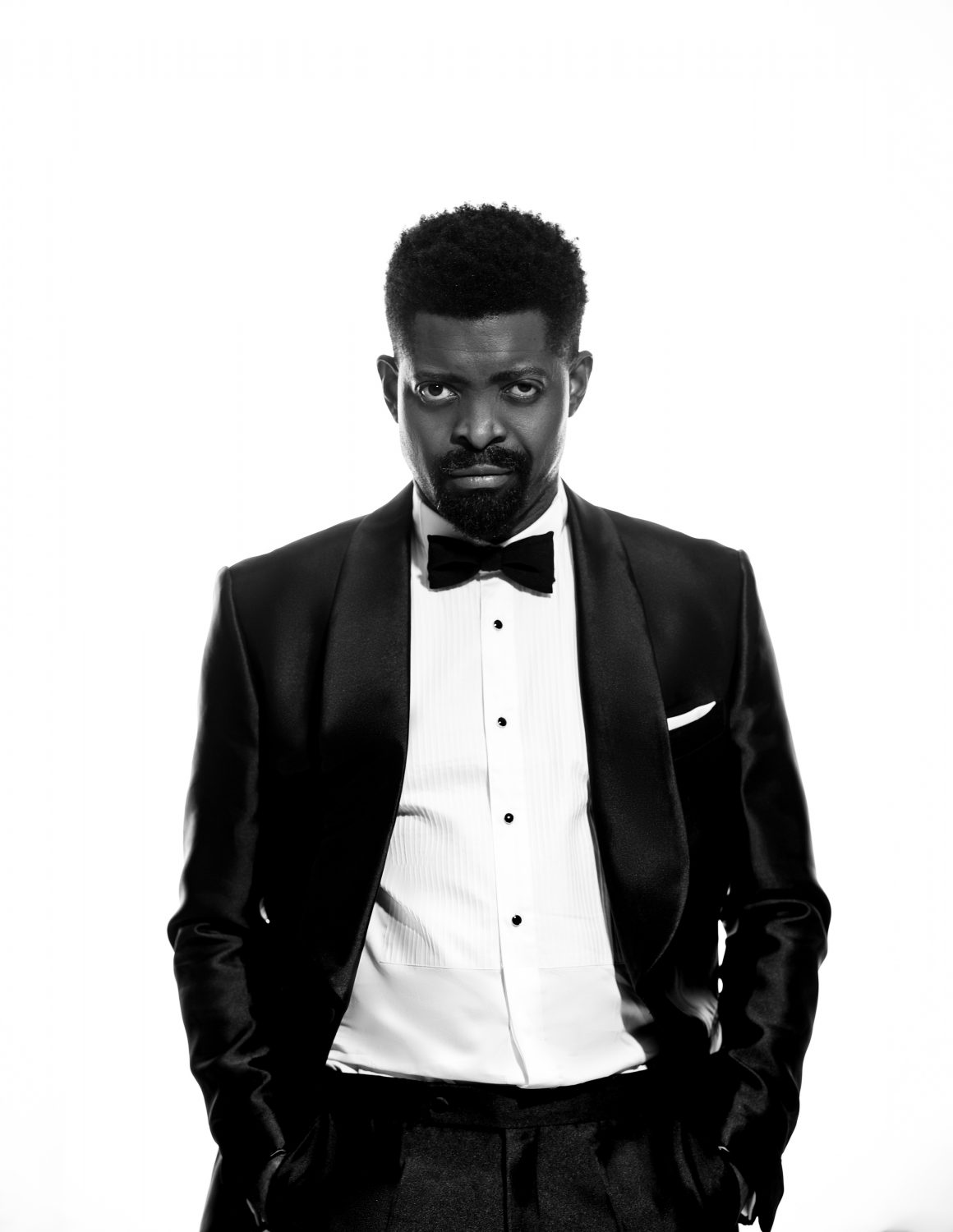
How did the growth of the internet and social media contribute to growing your brand and exposing your content to so many people?
Social media is a global village that connects the entire world in one space. So, more visibility means more brand growth.
Do you do any special prep before taking the stage or taping a show, and so far, what has been your most memorable show and why?
Not necessarily; it’s different for every show. Sometimes, I listen to certain music, but the genre is always different. It’s about the set and where I want to be mentally and emotionally. Go through the set mentally and end it all with a prayer. That’s the only static thing—the prayer.
Are there lines as a standup comedian that you won’t cross, and do you think there should be lines that standup comedians shouldn’t cross when presenting materials to an audience?
The world has gotten very sensitive. There are many lines comedians are now forced to stay within to escape the cancel culture. But we will still say what needs to be said regardless.
How does it feel to be the host of LOL: Last One Laughing Naija, one of the most highly anticipated comedy shows in Nigeria, and what surprises or twists can viewers expect you to bring to the show?
It has been a genuinely thrilling experience showcasing the Naija style of comedy globally. It’s been an honour. Secondly, it won’t be a surprise or twist if I tell you now. So japa to Prime Video.
How important is it for you to showcase the diversity and richness of Nigerian comedy through the show?
Comedy has taken a back seat in past years. People don’t realise how much work it takes to make someone laugh. Unlike music, where you sing along, comedy requires perfect synchronisation of skill and tactic; otherwise, the result will be disastrous. LOL is a diverse cast of comics trying to outdo each other with their varied styles, and that alone will showcase the richness of Naija comedy.
How will the presence of such a talented cast elevate the comedy experience for both the contestants and the viewers?
The cast will be seen in a raw element different from what they put out online. People will be excited to experience that unscripted realness from them. It’ll keep the viewers glued to the screen.
What do you think the audience will enjoy the most about LOL: Last One Laughing Naija, and what do you hope they will take away from watching it?
The audience will enjoy watching their faves make a fool of themselves. The takeaway will be the resilience put up by whoever the winner is. It takes sheer determination not to crack a smile in a room full of some of Naija’s funniest comedians.
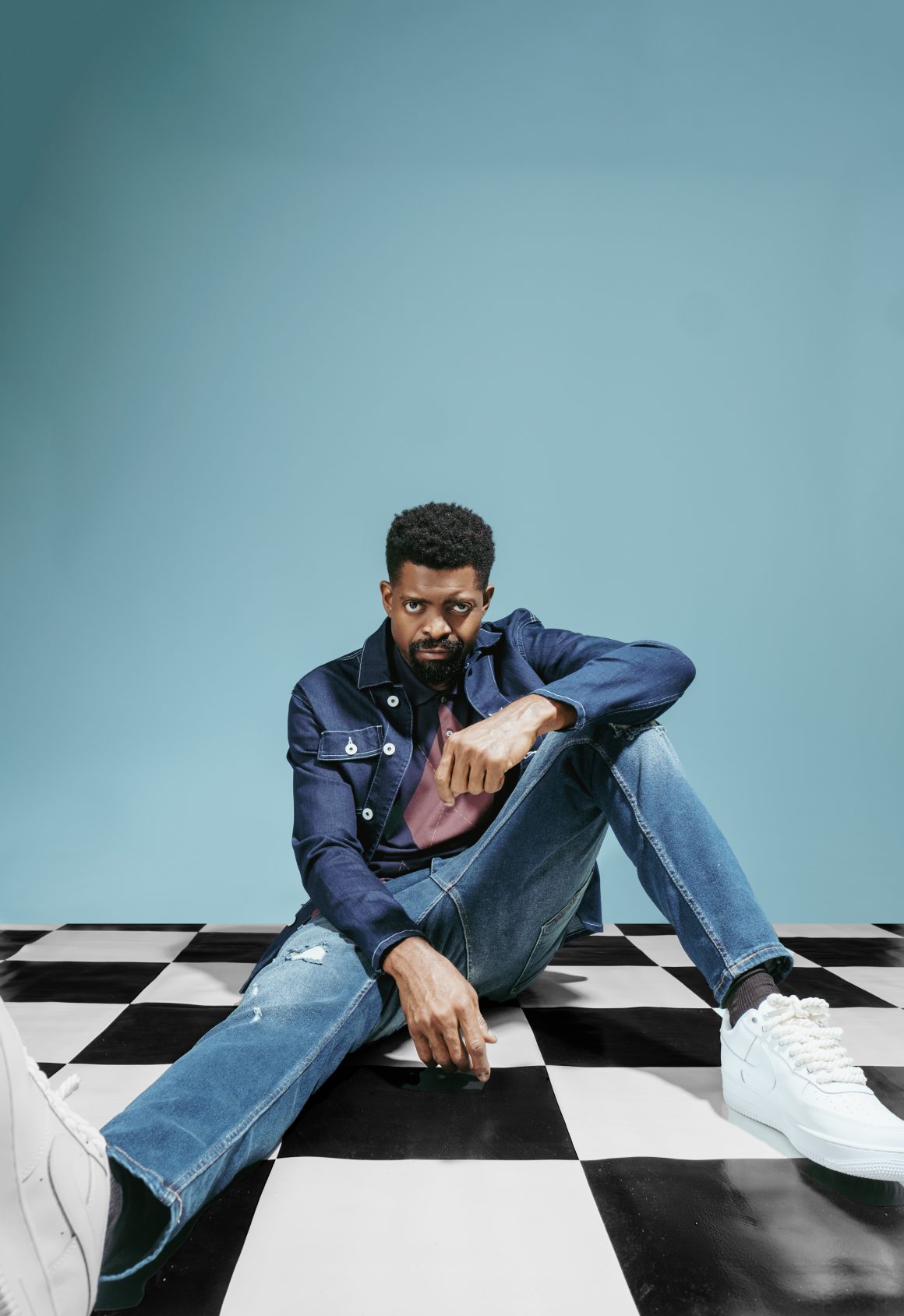
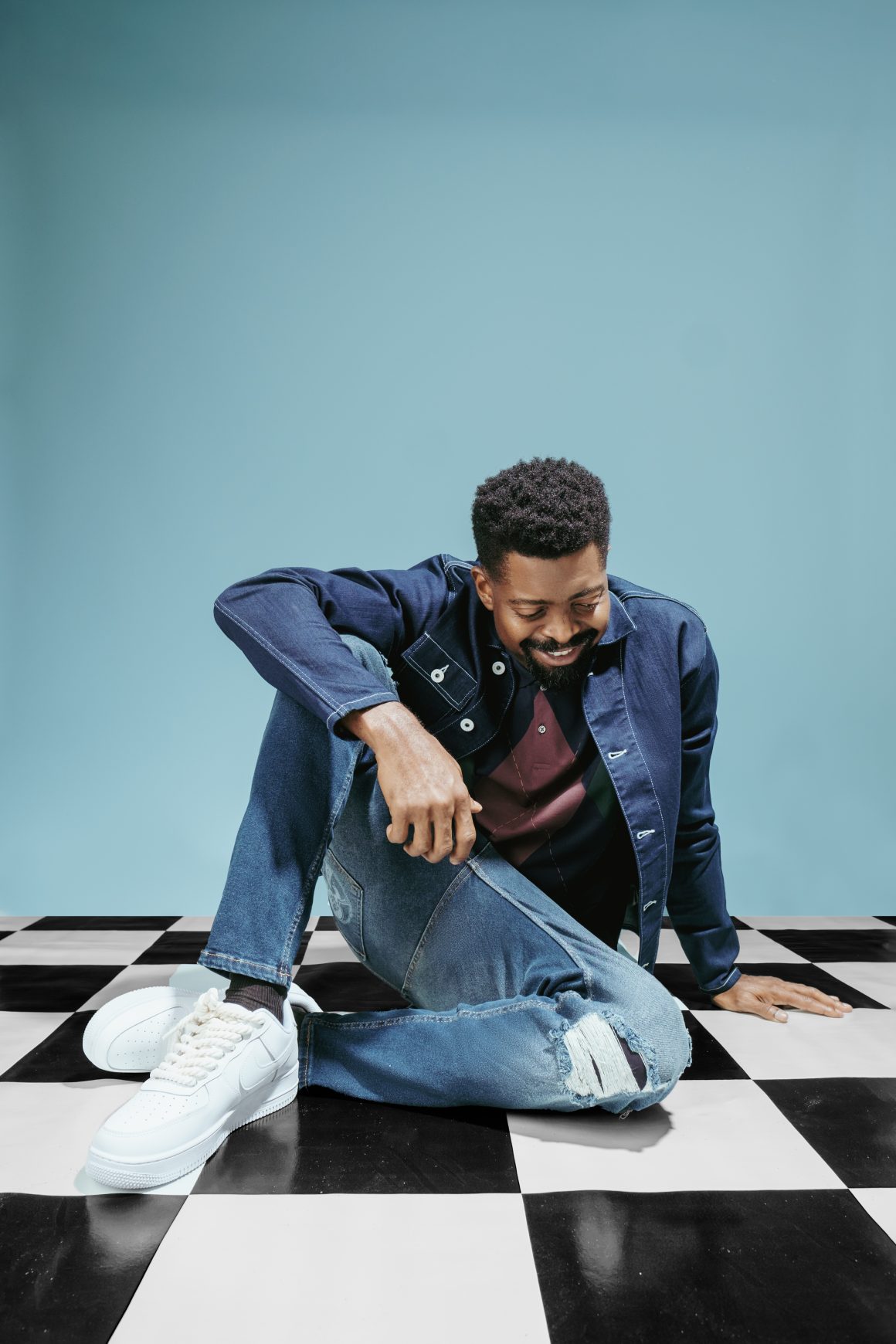
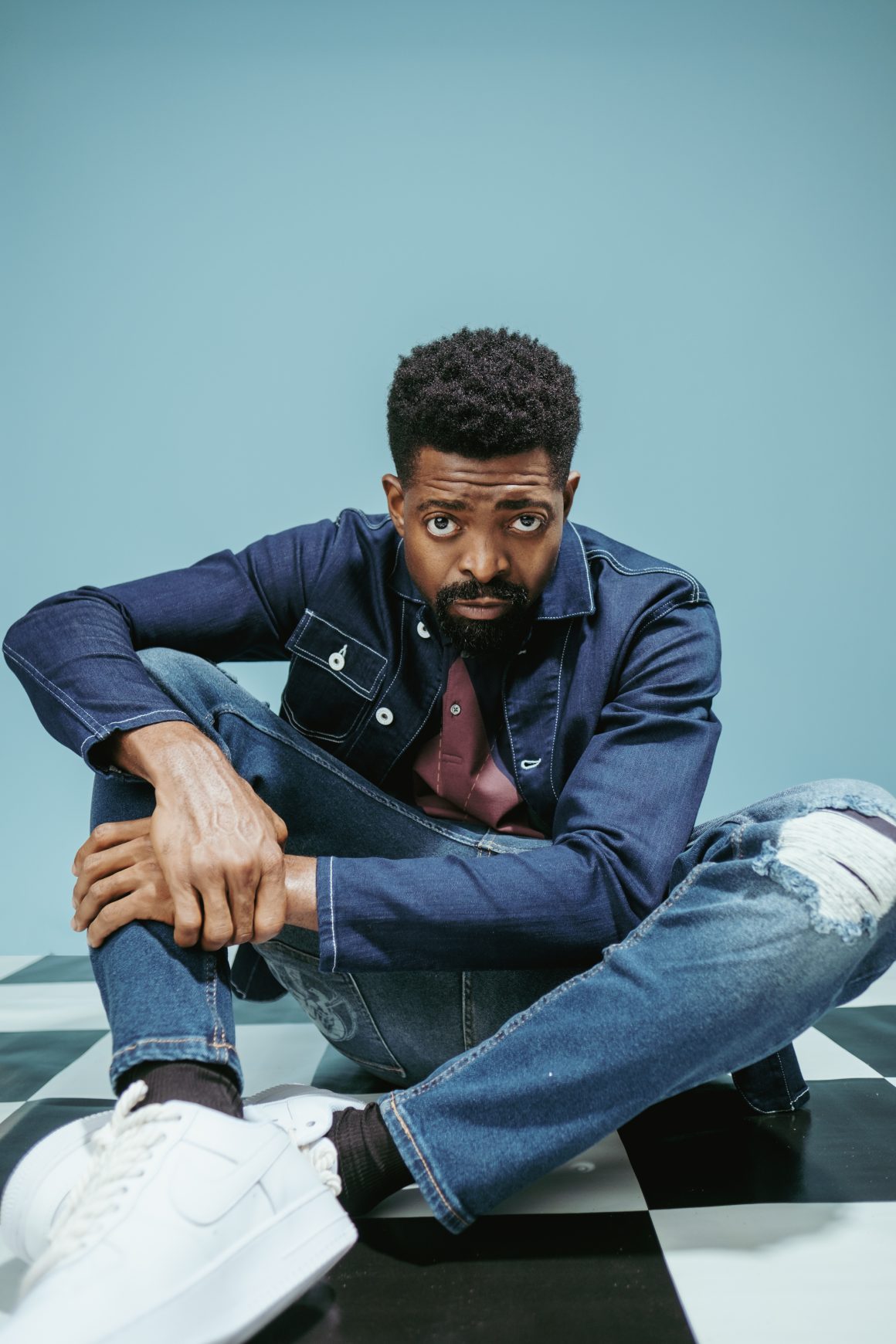
What role does laughter play in bringing people together, especially in a diverse, multicultural country like Nigeria?
Everyone loves to laugh. It’s good for the soul. Nigerians are naturally happy people, especially with the realities we face daily. LOL will be another perfect escape to go and forget your worries. It is better when watched with family and friends. Because laughter shared lasts longer.
How important is it for you to use your platform to give back and support local charities?
Very Important. Nobody lives forever, but people will remember your legacy, your work, and how you made people feel.

